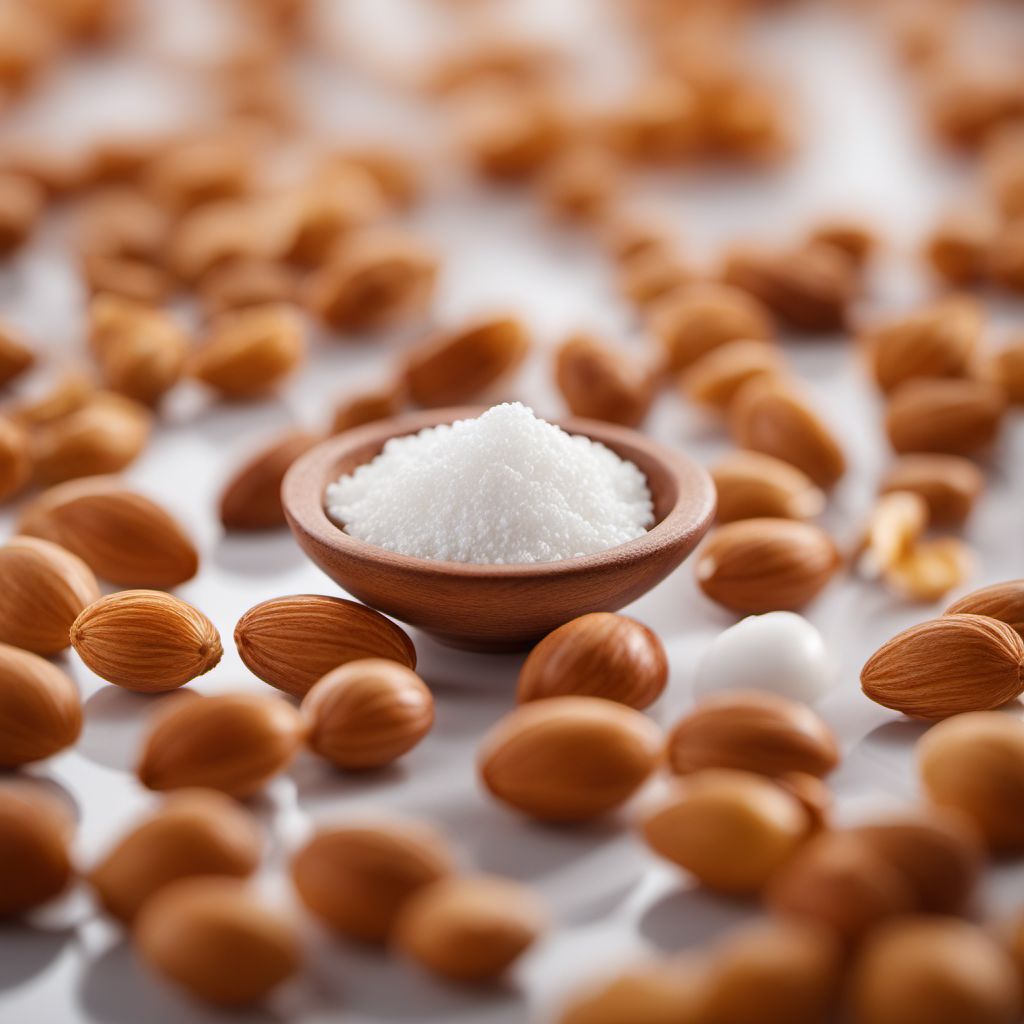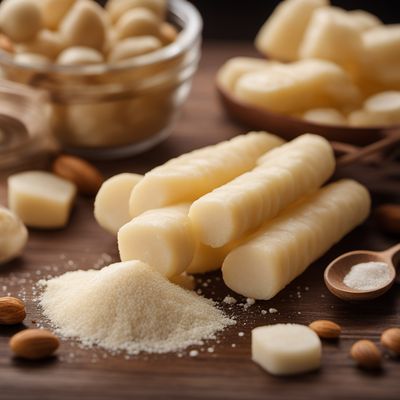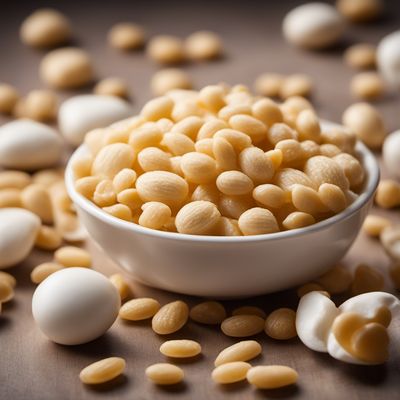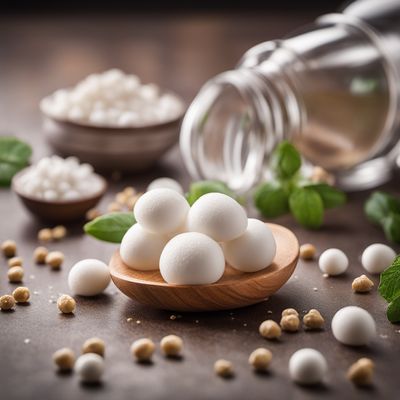
Ingredient
Erythritol
Natural Sugar Substitute
Erythritol is a sugar alcohol that occurs naturally in certain fruits and fermented foods. It has a sweet taste similar to sugar but contains fewer calories and does not raise blood sugar levels. Erythritol has a granulated texture similar to sugar and can be used as a substitute in various recipes and beverages.
Origins and history
Erythritol was first discovered in the mid-19th century and has since gained popularity as a sugar substitute due to its unique properties. It is naturally present in small amounts in fruits like pears, watermelons, and grapes. Erythritol can also be produced through a fermentation process using certain yeasts or bacteria. Today, erythritol is widely used as a sugar alternative in various food and beverage products.
Nutritional information
Erythritol is virtually calorie-free and does not raise blood sugar levels, making it a suitable option for individuals following low-calorie or low-carb diets. It does not contribute to tooth decay and has a minimal impact on blood glucose levels, making it a popular choice for people with diabetes or those looking to reduce their sugar intake.
How to select
When selecting erythritol, look for products that are labeled as 100% pure erythritol without any added sugars or fillers. It should have a granulated texture similar to sugar and a sweet taste without any bitter aftertaste. Additionally, consider the brand reputation and quality certifications when purchasing erythritol.
Storage recommendations
To maintain the freshness and quality of erythritol, store it in an airtight container in a cool, dry place away from moisture and direct sunlight. Proper storage helps prevent clumping or moisture absorption, which can affect the texture and quality of erythritol.
How to produce
Erythritol is typically produced through a fermentation process using natural sugars or starches. While it is possible to produce erythritol at home using certain yeasts or bacteria, it requires specialized equipment and knowledge. It is more practical to purchase commercially available erythritol for personal use.
Preparation tips
Erythritol can be used as a sugar substitute in various recipes, including baked goods, beverages, and desserts. It can be used in a 1:1 ratio as a replacement for sugar in most recipes. However, it may not provide the same browning or caramelization effects as sugar in certain recipes. It is also important to note that erythritol may have a cooling effect when consumed in large quantities.
Substitutions
Other suitable sugar substitutes for erythritol include stevia, xylitol, and monk fruit sweetener. These alternatives offer similar sweetness levels and can be used in a 1:1 ratio as a replacement for erythritol. However, each substitute may have slightly different taste profiles and may require adjustments in recipes to achieve the desired sweetness.
Culinary uses
Erythritol is commonly used as a sugar substitute in various food and beverage products, including sugar-free candies, chocolates, baked goods, and beverages. It is also used in low-sugar or sugar-free versions of jams, jellies, and syrups. Erythritol is a versatile ingredient that can be incorporated into a wide range of recipes and dietary products.
Availability
Erythritol is widely available in grocery stores, health food stores, and online retailers. It is commonly found in regions where low-sugar or sugar-free products are in demand. Erythritol is approved for use as a food additive in many countries, including the United States and European Union.
More ingredients from this category

Other polyols
The Sweet Side of Sugar Substitutes: Exploring Other Polyols

Maltitol
The Sweet Secret: Maltitol

Mannitol
The Sweet Alcoholic Sugar

Lactitol
"The Sweet Secret: Exploring the Versatility of Lactitol"

Sorbitol
Sweetener with a Twist

Xylitol
The Sweet Tooth's Ally

Isomalt
The Sweet Secret: Isomalt